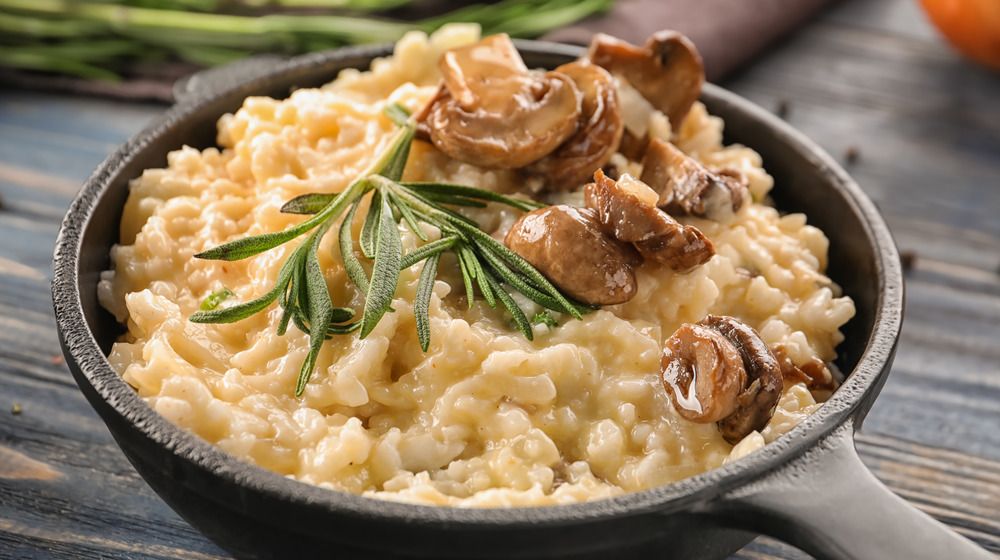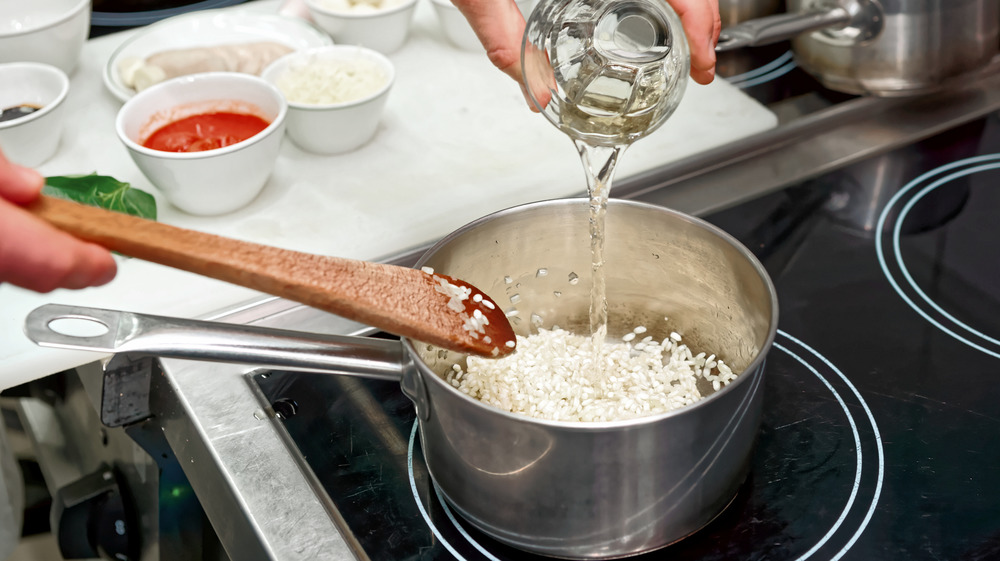Here's What You Can Substitute For Wine In Risotto
Whether enjoyed on the side of seared scallops or roasted chicken or eaten as a meal all on its own, risotto is a creamy and hearty dish that's commonly found on the menu at fancy Italian restaurants and a favorite among chefs and foodies alike. However, while it may be delicious, risotto is notoriously tricky to make at home. Or at least, to make properly at home. You have to cook it just the right length of time, stir it just the right amount, and add each of the ingredients at just the right moment.
With all that being said, you'd likely (and rightfully) believe that the ingredients matter just as much as everything — substitutions aren't going to cut it. But fortunately, there are some swaps you can make if you want to whip up a batch of risotto but don't have one of the required ingredients on hand. Take white wine, for instance. A staple in most risotto recipes, there's an easy substitution you can make for it.
This ingredient adds the same acidity as wine
White wine gives risotto that rich, slightly acidic flavor. To replicate that, Substitute Cooking recommends replacing the wine with chicken stock and a few drops of lemon or lime juice for tartness. They suggest just a squeeze of lemon/lime/orange per cup of stock — you don't want to use too much, or the fruity flavor will overpower the chicken stock. The Kitchn relates that you can also add a splash of red or white wine vinegar for the same acidity as the citrus. If you're vegetarian or vegan, Substitute Cooking says you can use vegetable stock or broth instead of chicken stock. Just use the same ratio of white wine to stock so your risotto isn't too dry or too watery.
Whatever you do, don't use vinegar. While this is a popular white wine substitute in some recipes, in risotto, it can completely ruin the flavor and texture of the final dish, as Tastessence cautions.

